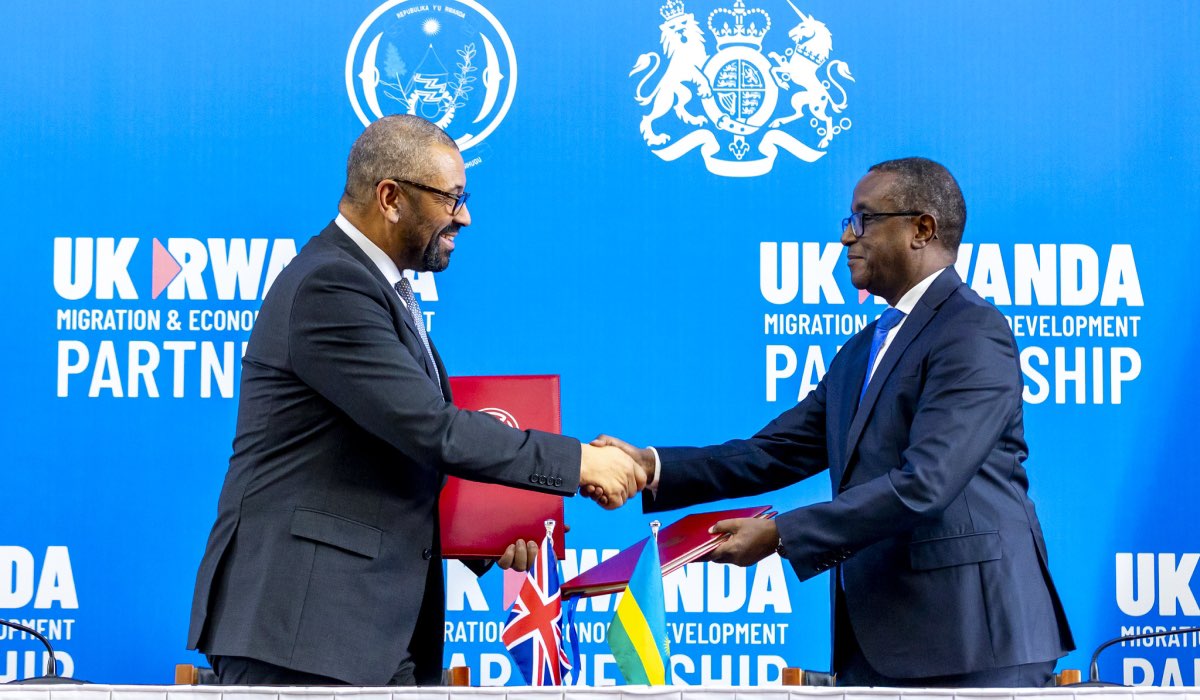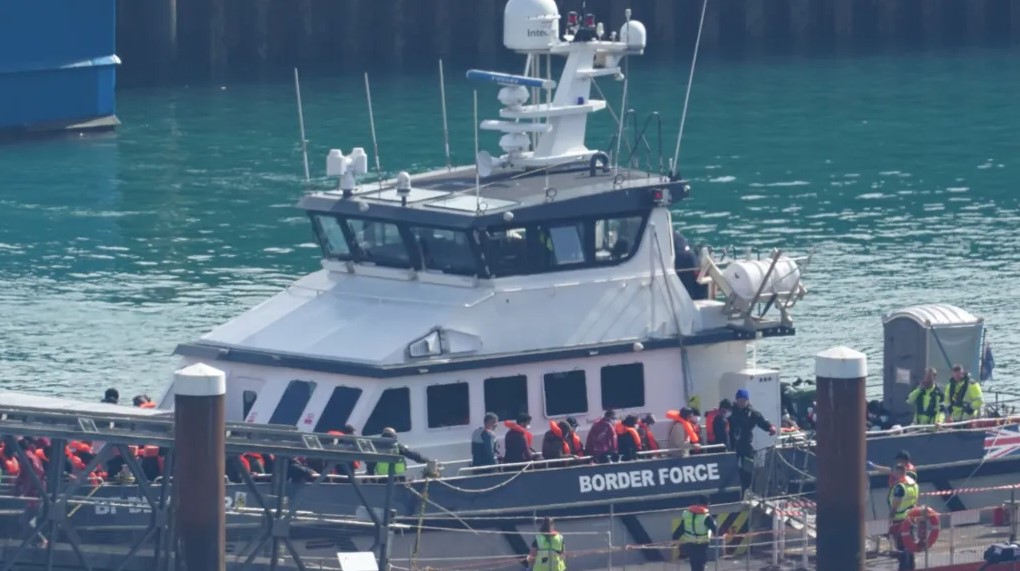What’s Happening
The UN Human Rights Committee (UNHRC) has issued a review of the UK in which it urges the nation to abandon its plan to deport illegal migrants and illegal asylum seekers from the UK to Rwanda.
The UNHRC said they “regretted” the UK’s plan, as well as the UK’s “efforts to adopt the Safety of Rwanda (Asylum and Immigration) Bill despite the UK Supreme Court’s ruling that the arrangement would not be compliant with international law.”
The UNHRC further called on the UK to withdraw the Safety of Rwanda bill, or to repeal it in the event of its passage.
The calls of the UNHRC come just over a week after the UK government’s legislation meant to bring about the plan faced yet more setbacks.
The Bill
The Safety of Rwanda bill seeks to establish Rwanda as a ‘safe’ country according to UK law. The reasoning for this is a deal the UK has signed with Rwanda in order to deport illegal immigrants and illegal asylum seekers to Rwanda, meant to be a deterrent for small boat crossings into the UK from the English Channel.
The deal and relevant legislation, however, were struck down by the UK’s supreme court in November on the grounds that Rwanda was not a ‘safe’ country for those being deported. The court claimed that deportees could face mistreatment in Rwanda, deportation from Rwanda to their nation of origin or a third country, and that Rwanda’s capabilities to receive an influx of deportees from the UK was not good enough.
PM Sunak and conservative MP James Cleverly tabled the Safety of Rwanda bill in response, after signing a new agreement with Rwanda. The new agreement, signed December 5th, 2023, carries with it provisions to ensure that people sent to Rwanda cannot be deported from Rwanda to another country.

Additionally, the bill seeks to halt legal challenges from entities outside the UK, such as the European Court of Human Rights, which has prevented deportations to Rwanda in the past. PM Sunak had previously said the “decision will lie entirely with ministers”, however the amendments tabled by the Lord’s seeks to restore the jurisdiction of domestic courts and allow their intervention.
Thus far, the UK has already spent 240 million pounds (304 million USD) on the plan in payments to Rwanda, largely in order to facilitate the upgrade of Rwandan institutions and increase their ability to receive a large flow of migrants from the UK. Upon the plan’s completion, it is set to cost the UK a total of at least 370 million pounds (470 million USD).
The bill had passed through the UK’s House of Commons in January, and had been making its way through the House of Lords, however last week faced yet another setback as the House of Lords voted to instate a number of amendments on the bill, thus sending it back to the House of Commons in what is known in the UK as ‘parliamentary ping pong’.

The House of Lords voted to make amendments to the legislation that would require ministers to take “due regard to domestic and international law”, restore the jurisdiction of domestic courts on the matter, as well as an amendment which would only declare Rwanda to be a ‘safe country’ when a treaty Rwanda signed with the UK is implemented.
The legislation is now unlikely to pass until at least mid-April, when the UK’s House of Commons returns from their Easter break. The legislation is set to be deliberated upon in the House of Commons again on April 15th. Technically, it could go to the House of Lords again the next day, and then pass, however this is unlikely.
Pressure Growing
Pressure is growing on UK Prime Minister Rishi Sunak to get the bill passed, and flights off the ground to begin the deportations to Rwanda. The plan has faced criticisms from opponents who claim it ignores the UK’s obligations for human rights and under international law. The plan has also faced criticism from allies who express discontent that the plan has taken so long to come to fruition, and some who say the Safety of Rwanda bill does not go far enough to address the problems barring planes from taking off.
PM Sunak had promised that flights would begin within Spring. While this is technically still possible, it is becoming increasingly unlikely that he will be able to fulfill this promise, which is of particular importance considering the UK is likely to have an election this year, the polls for which the Conservatives are trailing behind the Labour party by a huge margin.
Political analysts for the UK claim that the Conservative party has a very minimal chance of winning. John Curtice, a well known polling authority in the UK, has stated that there is a “99 percent chance of Labour forming the next administration.” The Conservatives have polled at a mere 23% compared to the Labour’s 45% according to Politico’s ‘Poll of Polls’, which amalgamates data from a number of different polls.
The future of the legislation, and the plan as a whole, is likely to not be a bright one under a Labour government, with the Labour party having opposed the plan from the beginning.
If the legislation passes in mid-April, the government has stated it would take around a month for the necessary arrangements to be made for the first flight to take off.
Stop the Boats
The Rwanda deportation plan is the flagship of PM Sunak’s ‘Stop the Boats’ initiative, which is meant to deter illegal immigrants from making the journey across the English Channel to the UK in small boats. The journey is very dangerous, and one oftentimes organized by human trafficking groups. Journeys made by migrants to various destinations in Europe regularly result in fatalities after the oftentimes poor quality and overcrowded boats capsize.
PM Sunak claimed in January the plan was working, stating that small boat entries into the UK were down a third in 2023 from 2022. However, March 20th was the busiest day for small boat migrant entries into the UK, with the British Home Office stating they intercepted 10 different small boats with 514 migrants on board, which was the highest total so far in 2024.

Days following also witnessed high amounts of small boat crossings, with March 26th recording the entry of 338 people. March’s crossings bring the 2024 total up to 4,644, which is 23% higher than the same period in 2023, which saw 3,770 crossings from January to March.
The UK has partnered with France to try and stop some of these small boat crossings, with PM Sunak agreeing to pay France several hundred million pounds over several years to assist with them halting migrants. This is in addition to the already more than 700 million pounds the UK has given France for this same purpose since 2014.
However recently surfaced footage and documents of French maritime police using aggressive action to stop these boats has prompted an outcry at the tactics being used, as well as anger towards the UK for what human rights organizations say is their lack of will to establish safe and legal means for people to seek asylum there.
Footage emerged of French maritime police quickly circling nearby and around dinghies in order to cause waves to come over the sides, purposefully flooding the dinghy. Footage has also emerged of French police threatening groups of migrants with large canisters of pepper spray.
What is France doing in return for UK cash to ‘stop the boats’?
Unseen footage obtained by @LHreports shows new aggressive campaign where French police carry out violent interceptions at sea – flooding & ramming into vessels & using pepper spray
Thread ? pic.twitter.com/ntJ7BpRlMF
— Lighthouse Reports (@LHreports) March 23, 2024
Documents have additionally detailed French police ramming into a dinghy, as well as puncturing several dinghies which forced those above to swim to shore.
“There were four of them [French gendarmes] on the boat. They went round the boat in a circle and then they stabbed the boat and left. We had to swim for about 10 minutes … We nearly died” -Testimony of a migrant from India who had boarded a small boat bound for the UK. He reported the incident with the French human rights ombudsman in February, and the incident is currently under investigation.
Human rights groups have criticized the moves, which they say could lead to fatalities in the waters that are several metres deep.
Similar tactics have been employed by Greek authorities who have attempted to drive migrants back to Turkish shores.


